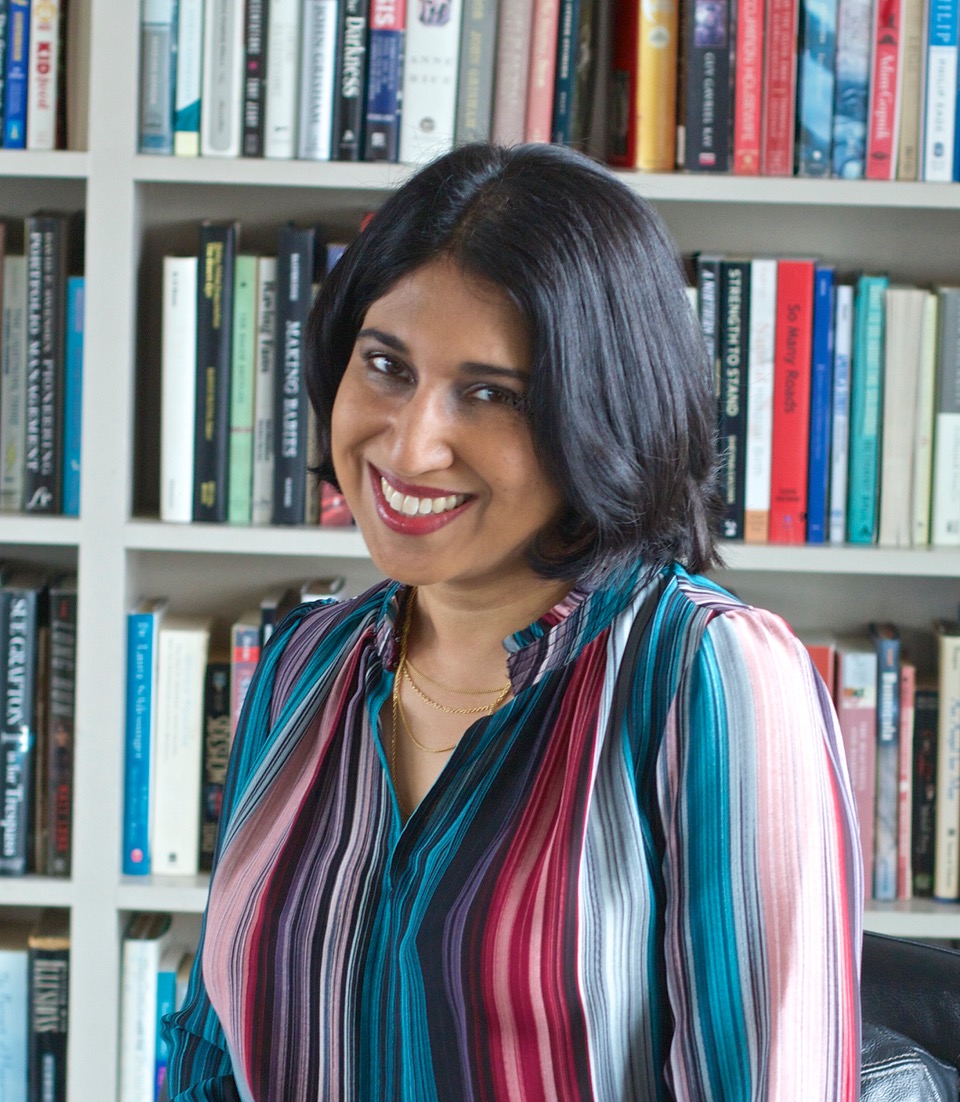This week, the Editors’ Weekly is holding a conversation with Sangeeta Mehta on the current state of diversity in publishing and how editors can be leaders in the fight for inclusion.

About Sangeeta
Sangeeta Mehta has worked in the book publishing field since the late 1990s. She has been an acquiring editor at both Little, Brown Books for Young Readers and Simon Pulse. Sangeeta currently consults on book projects for corporate and independent book publishers (with clients including Macmillan, Lee & Low, and Workman Publishing) and individual authors. She also leads workshops with Inked Voices.
Sue Archer: As a board member of the Editorial Freelancers Association (EFA), you launched their first diversity initiative in 2016. Can you tell us about your experiences with this initiative over the past few years and how you feel editors and their associations can better support diversity?
Sangeeta Mehta: It’s been a wonderful experience! We’ve created several resources, including a word list of contested terms; started a Welcome Program for new EFA members; and we are in the process of launching a survey to determine how diverse the EFA is as an organization so we can better address inequities. I would encourage all organizations to form some sort of diversity initiative if they don’t already have one.
SA: You’re also a board member for The Word, a non-profit organization working to build a publishing community that “will fight for inclusivity” (as stated on Twitter). What do you feel are the most significant barriers that need to be overcome to make the publishing industry more inclusive? Where have you seen success?
SM: One of the biggest barriers is economic. Since entry-level salaries are so low, and the cost of living in New York is so high, in the past only the independently wealthy have been able to afford to work in the publishing industry. Now, many organizations such as The Word are working to help those from marginalized backgrounds get their foot in the door. We Need Diverse Books offers grants to students to supplement their internships with publishing houses or literary agencies, and many of their grant recipients have been hired into full-time positions.
SA: Writers and editors often struggle when attempting to balance cultural sensitivity with craft. When do you feel a writer should use the services of a sensitivity reader? Are there some stories that should be #ownvoices only?
SM: Writers should hire sensitivity readers if they are writing about a character with a background different from their own or a storyline they do not have firsthand experience with; this helps to ensure authenticity and avoid misrepresentation. I don’t think all stories should be #ownvoices, but it’s heartening that children’s book publishers in particular are more likely to acquire such stories.
SA: I’ve been following the story of Romance Writers of America (RWA) and the challenges the organization has been facing in confronting racism. There has been a lot of online discussion on how to be an active ally (“antiracist”). Do you have any suggestions on how editors can become better allies? Are there any resources you would recommend?
SM: It’s interesting that you use this wording, as I have been meaning to read Ibram X. Kendi’s How to Be an Antiracist. As for other resources — there are too many to list, but I have a great deal of respect for the Conscious Style Guide. This lighthearted take on writing people of color is eye-opening. And I love this piece by Alexander Chee about what to do when a writer asks, “Do you have any advice for writing about people who do not look like you?” Every editor could benefit from answering as he does, with questions, because asking the right questions is the most important aspect of an editor’s job, isn’t it?
___
Previous post from Sue Archer: Review: Elements of Indigenous Style: A Guide for Writing By and About Indigenous Peoples by Gregory Younging
The Editors’ Weekly is the official blog of Editors Canada. Contact us.
Discover more from The Editors' Weekly
Subscribe to get the latest posts sent to your email.
